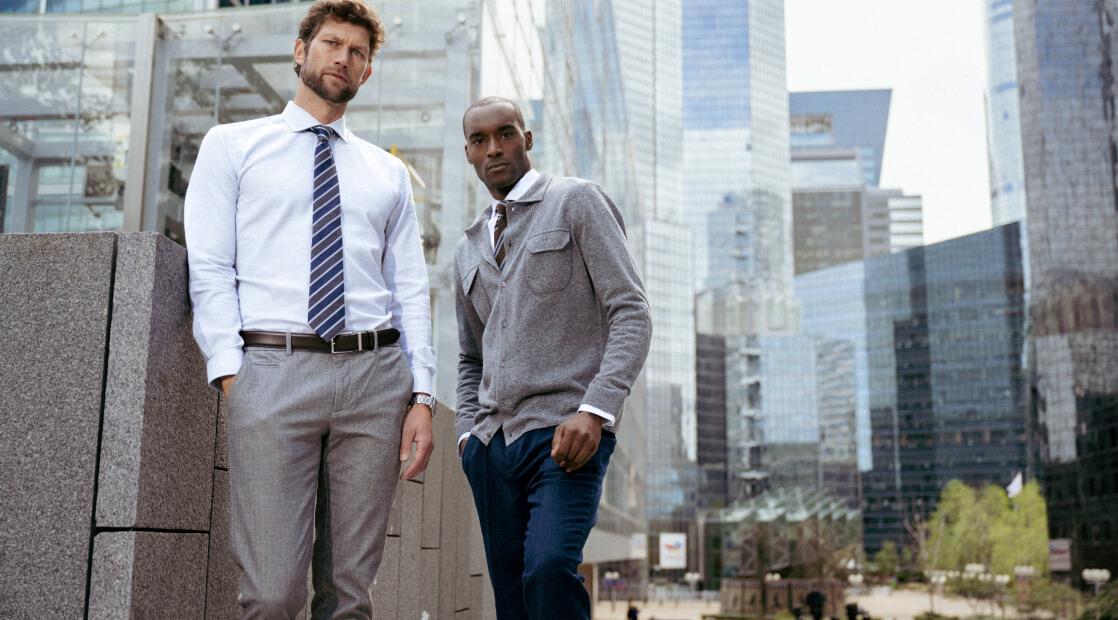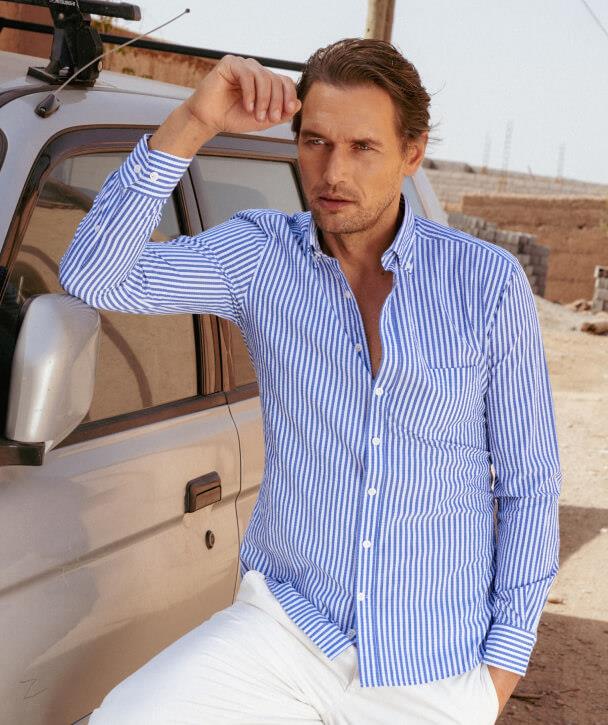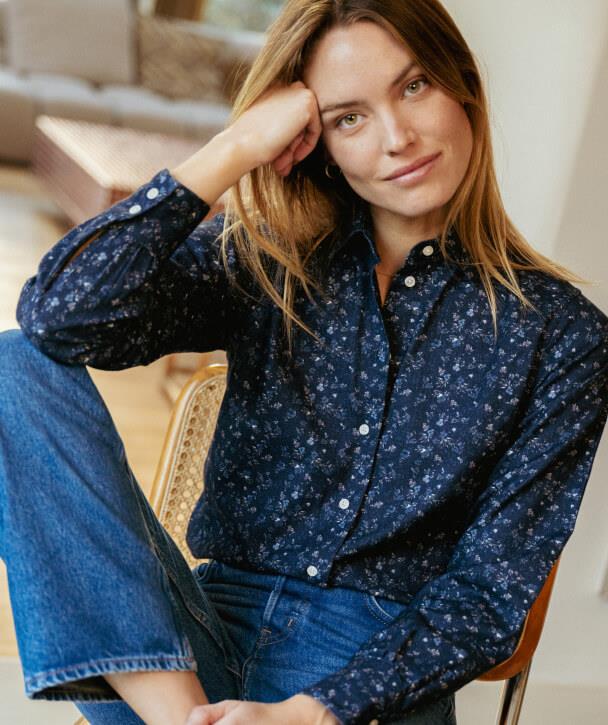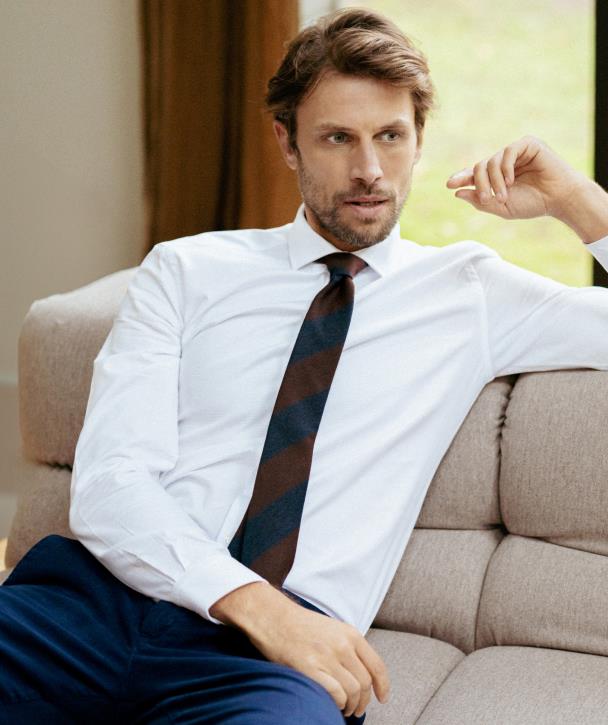WHAT NOT TO WEAR TO AN INTERVIEW: 6 KEY POINTS TO REMEMBER

Why to Avoid:
-
Wearing casual clothes like jeans, t-shirts, or sneakers can suggest a lack of professionalism or seriousness about the role.
What to Wear Instead:
-
Opt for business casual or formal attire, depending on the company’s culture. For men, a suit or dress pants with a collared shirt; for women, a professional dress or suit.
Why to Avoid:
-
Accessories that are too flashy or noisy (large jewelry, excessive piercings, bright ties) can distract the interviewer and take the focus away from your qualifications.
What to Wear Instead:
-
Choose simple and elegant accessories that complement your outfit without being overpowering. A classic watch or small, understated jewelry is ideal.
Why to Avoid:
-
Shoes that are too casual, such as flip-flops, sandals, or overly high heels, can give a negative impression.
What to Wear Instead:
-
Wear clean, polished shoes that match your professional attire. Closed-toe shoes are usually a safe bet for both men and women.
Why to Avoid:
-
Strong perfumes or colognes can be overwhelming and distracting, and some people may be allergic or sensitive to certain scents.
What to Wear Instead:
-
Opt for a light, subtle scent or avoid using any fragrance at all. Ensure you are fresh and clean, but don’t rely on strong scents to achieve this.
Why to Avoid:
-
Clothes that are wrinkled, too tight, or too loose can look sloppy and unprofessional. This may suggest a lack of attention to detail or preparedness.
What to Wear Instead:
-
Make sure your clothes are clean, pressed, and fit well. Tailored clothes can make a big difference in how polished you appear.
Why to Avoid:
-
Wearing clothes with large logos, graphics, or slogans can be distracting and may not align with the company’s image or values.
What to Wear Instead:
-
Stick to solid colors or simple patterns. Ensure your clothing choices reflect the professionalism expected in the workplace.
In summary, dressing appropriately for an interview is crucial to making a positive first impression. Avoid overly casual attire, flashy accessories, inappropriate footwear, heavy fragrances, wrinkled or ill-fitting clothes, and clothing with logos or graphics. By following these guidelines, you’ll present yourself as a serious and professional candidate ready to join the company.


